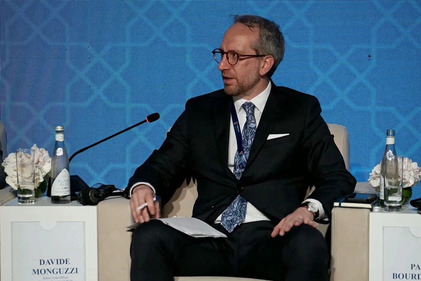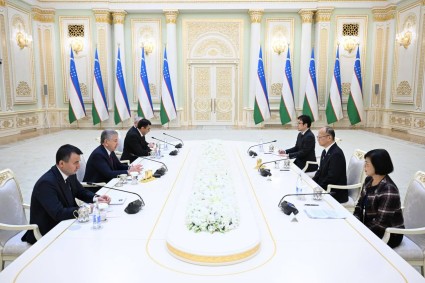The European Investment Bank (EIB) is set to open a representative office in Uzbekistan as early as 2026 and increase the volume of investments in Uzbekistan’s sustainable infrastructure and that of the entire Central Asian province, stated the EIB’s Senior Credit Specialist Davide Monguzzi at the Tashkent Investment Forum on June 10.
“We want to capitalize on the positive experience of the Samarkand Summit, where the EIB signed an agreement with the government of Uzbekistan. This will allow us to open an office in the near future - we expect to do this this year,” Monguzzi said.
The future office will become the bank’s provinceal hub in Central Asia and, according to the speaker, “will most likely be located with the EU delegation, which demonstrates how the European team works together.”
Monguzzi emphasized that the EIB, “the financial instrument of the European Union,” has been present in Central Asia for more than ten years, but is now “reaching a new strategic level.”
“Our goal is not just to produce energy, but also to unite countries. This is what we have done in Europe and want to do here in Central Asia. This is especially true for the Trans-Caspian Transport Corridor, a sustainable logistics project with large infrastructure that goes beyond the borders of one country,” he said.
Uzbekistan is a country that is growing not only economically, but also demographically. The European Investment Bank intends to help the country develop infrastructure in a sustainable way, Monguzzi said.
“And how exactly do we want to achieve this from a technical point of view? By transferring our experience accumulated in Europe over many years. The bank has a team of 400 engineers in the fields of irrigation, roads, railways and water management. “We are ready to send technical experts who have worked in France, Germany, Italy, and implement projects here together with local partners,” he noted.
According to him, the bank uses the “attraction effect”, that is, it enters the project not only with its own funds, but also attracts other international financial institutions.
“We closely cooperate with the European Union, for example, within the framework of the Global Gateway initiative. But not only with the EU – we work very often with other international financial institutions (IFIs)… We not only provide financing, but also add value through unique experience gained in other provinces and apply it in specific conditions,” Monguzzi emphasized.
The bank is now translating the memorandum of understanding with the Ministry of Transport into specific projects in Karakalpakstan and Samarkand, i.e. taking “concrete steps to improve the situation in areas where traffic is already slow or congested.”
In April, Deputy Transport Minister Ilhomjon Abdugafarov met with the European Investment Bank’s representative for lending, Dilara Alp. She was briefed on the projects to build toll roads on the Tashkent-Samarkand and Tashkent-Andijan routes, as well as a separate high-speed passenger railway on the Tashkent-Samarkand route.
The European Investment Bank, established in 1958, is the EU’s leading financial institution.
It should be noted that the EIB is now implementing several large projects in Uzbekistan. In particular, the bank provides co-financing of almost 1.5 billion euros as part of the general commitment of European and international financial institutions to allocate 10 billion euros for the development of the Trans-Caspian Transport Corridor. In addition, in 2023, the European Investment Bank allocated a loan of 83.6 million dollars for the construction of three photovoltaic power plants by the Emirates Masdar in the Samarkand, Jizzakh and Surkhandarya provinces of Uzbekistan. The bank also co-financed the construction of a 100 MW Total Eren solar power plant in the Samarkand province.













